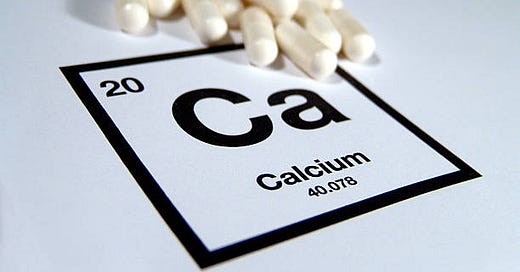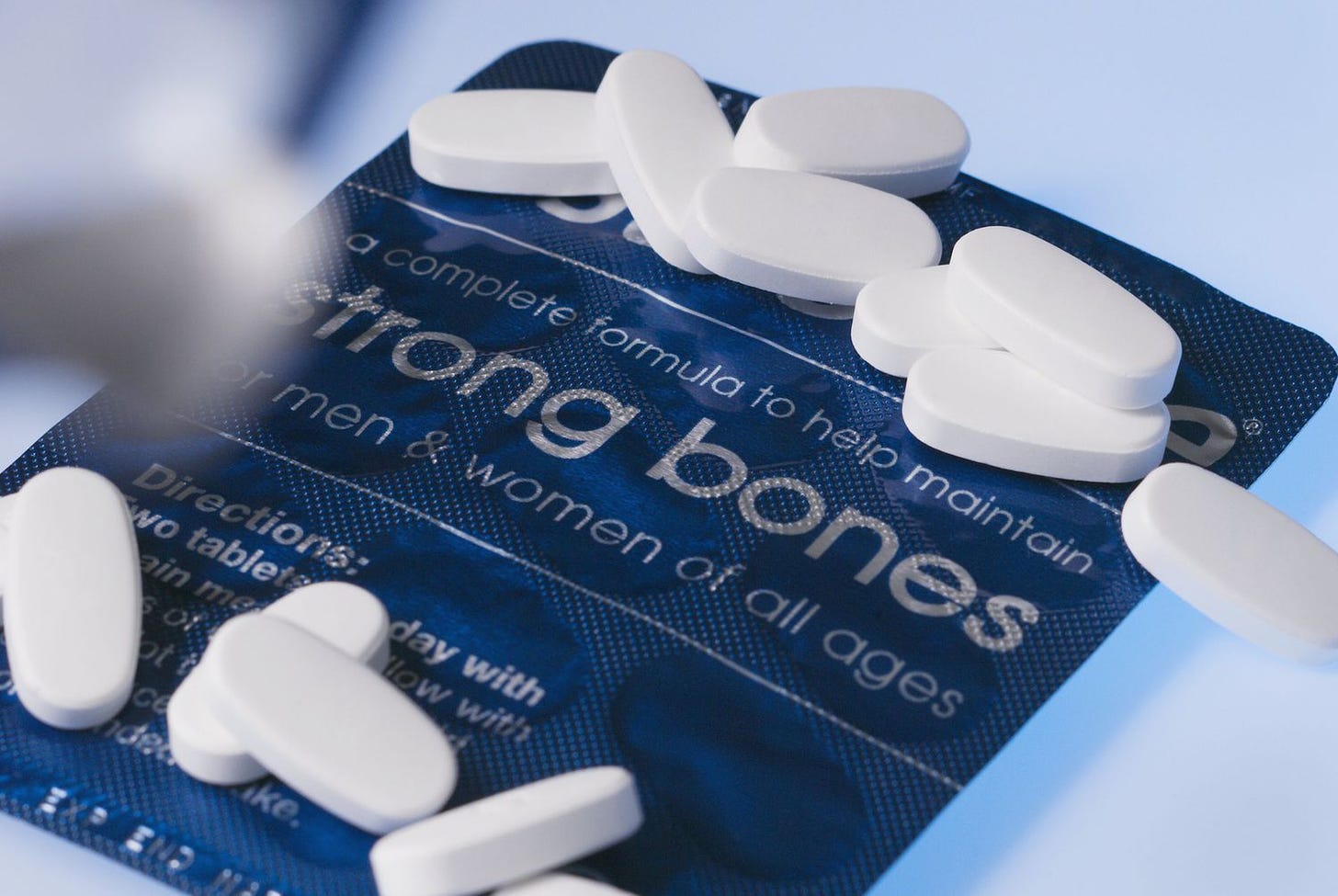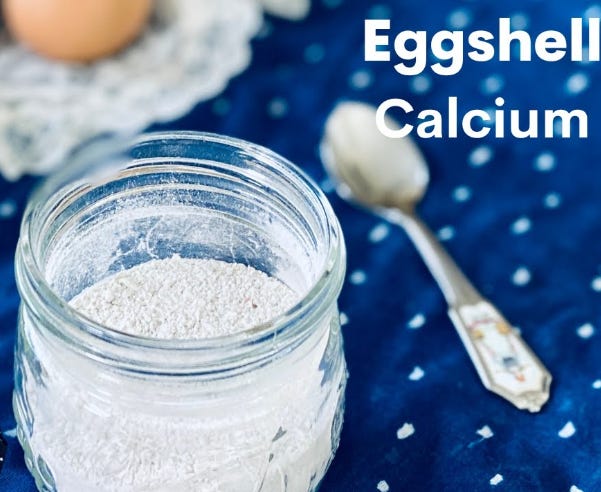I always knew, and was taught, that supplements are not the original version of the vitamin, but that we still needed them to “supplement” dietary deficiencies to keep us healthy. This fact has been drilled into the heads of the public and even professionals to the point that no one questions it.
This is also the premise that most dietitians, nutritionists, doctors and other professionals still work with today. But what if I told you these synthetic vitamins can actually harm you? Yes, you heard that right! I’ve been a proponent of supplementation most of my professional career, but I was wrong and I admit it, because I found concrete proof of harm. I know this will not be a popular subject with some, but once you see truth, you can never unsee it.
The base materials of supplements, similar to pharmaceutical drugs, are synthetic (isolated) nutrients, made artificially through industrial processes. These include vitamins, antioxidants, minerals, and amino acids, among others. They’re designed to mimic the way natural nutrients act in our body, and if you want to identify if a supplement is man made, check the label. Supplements that list nutrients individually or use chemical names like ascorbic acid are synthetic.
The ramification of this news is so big that I’ve immediately stopped using and recommending supplements. I’m going to write a series of articles on their dangers, delving into vitamin C, D, E and even vitamins deemed “natural.”
I’m not telling anyone to stop taking vitamins, but do have an objective look at what I’m saying. In further articles I will show that we’ve been fooled, and our foe is none other than that giant commercial Goliath called “Big Pharma.”
As children, our parents encouraged us to drink milk to build strong bones. But as adults, we gobble up calcium pills, rather than downing daily milk. Yet these calcium supplements may not be helping our bones at all. Even worse, they may lead to major health problems.
But wait a minute, aren’t we told calcium supplements are good for bone health and osteoporosis prevention? Yes, it’s been drilled into our heads for decades.
But the evidence shows it’s not true, because calcium chemicals supplements have definite drawbacks:
Inconclusive Health Benefits: Research for bone health is inconclusive.
Potential Risks: Studies show links to increased risk of colon polyps, kidney stones, and potentially heart disease. Higher calcium levels in the blood could also trigger blood clots or contribute to the narrowing of blood vessels, which is a huge concern for heart health.
Bodily Uptake: Calcium from supplements is not processed the same way in the body as calcium from food sources.
Cardiovascular Diseases: Studies have shown that supplemental calcium intake of more than 1,000 mg/day may raise the risk of death from cardiovascular diseases among men.
Gastrointestinal Issues: Calcium supplements, especially in the form of calcium carbonate, have been associated with gastrointestinal side effects such as constipation, severe diarrhea, and abdominal pain. Some studies have also suggested a correlation with the risk of colorectal adenoma.
Osteoporosis: While calcium supplementation is generally recommended for preventing osteoporosis and fractures, some studies suggest that it may not reduce the risk of hip fractures and could even potentially increase it.
These are fairly concerning health risks, but why? What’s behind these unhealthy results that no one seems to figure out? And why are health experts still telling us to take calcium supplements? Because my friends, these experts (probably 98% of them) are wrong! They’ve been miseducated just like the general public, to the point of data showing nearly 70% of shoppers seek out fortified and enriched products for their health.
In the last two decades, most of Big Pharma has been involved in gobbling up supplement companies, with over $20 billion invested up to 2017. By 2021 mergers and acquisitions meant that big Pharma began buying out all of the manufacturers, the chemical plants, and even the current vitamin-sellers, so they could monopolize the entire industry. This has developed the market to a robust $60 billion value, indicating a substantial shift in the industry. And by shift I mean nasty chemicals that we ingest.
Bayer, Nestle, Unilever, Proctor & Gamble, and Clorox are some big names, with acquisitions of such well-known supplement brands like Pure Encapsulations, Douglas Foods, Garden of Life, Vital Proteins, Nuun, and others.
So now the wellness industry has degenerated into a convergence of shady financial motives, lack of regulatory oversight, and preying on consumer desire to do what’s best for their health. This has led to health looking like this:
I’ll just state up-front that I was inspired to look into this subject because of the in-depth reporting of chemtrails.substack.com. His language can be salty, but he digs deep into what others miss.
Material Safety Data Sheets (MSDS) Point To Proof
Many people would scoff at the notion that calcium supplements can be bad for us. After all, our government would never allow a chemical to be used as a vitamin fortification, especially one that is dangerous to health, right? But the supplement industry is largely unregulated and to prove my point, I direct you to the Material Safety Data Sheet (MSDS) of calcium carbonate. I worked in a silver plating plant for about seven years, so I’m quite familiar with MSDS sheets. What they state is truth, because being unfamiliar with large batches of chemicals gets one killed quite fast.
A Material Safety Data Sheet (MSDS) is a document that provides detailed information about the potential hazards (health, fire, reactivity, and environmental) associated with a chemical product and how to work safely with it.
Calcium Carbonate is the chemical version of calcium that is often used to fortify. But in truth, it should not be added to food because the MSDS sheet says so plainly. Still, this chemical, supposedly rich in calcium to make our bones strong, is dumped into calcium-fortified foods that spill all over grocery store shelves. Check this out:
So the question is, why is it advised against food and drug use - even supplements? Because as chemtrails says, it’s rated a Health Category 2 by the NFPA. As you can see from the actual NFPA chart, Health Hazard 2 means it is hazardous to us. Do we want this in our body?
Other Types of Calcium Supplements
While calcium carbonate is the least expensive type, other calcium supplements contain several different kinds of calcium salts. The most common are labeled as calcium carbonate (40% elemental calcium); calcium chloride (36% elemental calcium), calcium citrate (21% elemental calcium); calcium lactate (13% elemental calcium); and calcium gluconate (9% elemental calcium). The health hazards of these are:
Calcium Chloride (Dihydrate)- a level 2 health hazard per NFPA, which means it is extremely hazardous.
Calcium Citrate (Tetrahydrate) - a level 1 health hazard per NFPA used as a laboratory chemical and is not advised for use in food, drugs, pesticides, or biocidal products.
Calcium Lactate (Pentahydrate) - a level 1 health hazard per NFPA used as a laboratory chemical and is not advised for use in food, drugs, pesticides, or biocidal products.
Calcium Gluconate (Monohydrate)- a level 1 health hazard per NFPA used as a laboratory chemical and is not advised for use in food, drugs, pesticides, or biocidal products.
I’m not even adding in the “other chemicals ingredients” on calcium supplement labels that would make for onerous reading. All of these combined will slowly chip away our health over the years, a fact that runs counter to what we are told.
So, how do we get sufficient dietary calcium then? First, our diet. Here's a comprehensive list of calcium-rich foods, including their standard portions and amounts of calcium per portion:
Dairy
Whole Milk: 1 cup, 300 calories, 300 mg of calcium
Cheese: 1 1/2 ounces, ~55-155 calories (by type), ~115-485 mg calcium (by type)
Yogurt: 1 cup, 450 calories, 450 mg calcium
Buttermilk: 1 cup, 300 calories, 300 mg calcium
Heavy Cream: 1 cup, 300 calories, 300 mg calcium
Vegetables
Lamb quarters, cooked: 1 cup, 464 calories, 58 mg of calcium
Nettles, cooked: 1 cup, 428 calories, 37 mg of calcium
Mustard spinach, cooked: 1 cup, 284 calories, 29 mg of calcium
Amaranth leaves, cooked: 1 cup, 276 calories, 28 mg of calcium
Collard greens, cooked: 1 cup, 268 calories, 63 mg of calcium
Spinach, cooked: 1 cup, 245 calories, 41 mg of calcium
Turnip greens, cooked: 1 cup, 197 calories, 29 mg of calcium
Bok choy, cooked: 1 cup, 185 calories, 24 mg of calcium
Kale, cooked: 1 cup, 177 calories, 43 mg of calcium
Mustard greens, cooked: 1 cup, 165 calories, 36 mg of calcium
Beet greens, cooked: 1 cup, 164 calories, 39 mg of calcium
Pak choi, cooked: 1 cup, 158 calories, 20 mg of calcium
Dandelion greens, cooked: 1 cup, 147 calories, 35 mg of calcium
Protein Foods
Sardines, canned: 3 ounces, 325 calories, 177 mg of calcium
Salmon, canned, solids with bone: 3 ounces, 181 calories, 118 mg of calcium
Tahini (sesame butter or paste): 1 tablespoon, 154 calories, 94 mg of calcium
The U.S. Department of Health and Human Services and the U.S. Department of Agriculture recommend 1,000 milligrams of calcium per day for women ages 19 to 50 and men of all ages. For women over 50 and men over 70, the recommendation increases to 1,200 mg per day. That should not be hard to get through the diet.
Another natural way to get calcium is through eggshells. This is a sustainable and cost-effective way to supplement your diet with this mineral.
High Absorption Rate: A study found that calcium absorption was up to 64% greater from eggshell powder compared to pure calcium carbonate, attributed to certain proteins found in eggshells.
Additional Minerals: Beyond calcium, eggshells also contain small amounts of other minerals like strontium, fluoride, magnesium, and selenium, which are beneficial for bone health.
Bioavailability: Eggshells are made almost entirely of calcium carbonate, which is the same mineral that makes up our nails, teeth, and bones. This natural form of calcium is easier for our bodies to absorb and assimilate.
Bone Density: Eggshell powder can significantly improve bone mineral density, making it an effective aid for osteoporosis. It also contains collagen that may offer benefits for joint health.
Versatile: Eggshell powder can easily be made at home using a grinder. It can then be added to a variety of foods, making it a flexible (truly natural) supplement.
How to Make Eggshell Calcium Powder
Collect Eggshells: Gather 10-12 eggshells. If you're not consuming a lot of eggs, you can store leftover shells in the refrigerator or freezer until you have enough.
Sterilize and Dry: Place the eggshells in a medium saucepan, cover with water, and boil for 15 minutes to sterilize. Spread the shells on a baking sheet and bake at 225°F for 20 minutes to dry them out.
Grind to Powder: Use a coffee or spice grinder to grind the shells into a very fine powder. A finer powder mixes better.
Storage: Store the powder in an airtight jar in a cool, dry place for up to a month. It's safe to consume as long as the shells are properly sterilized and ground into a fine powder.
Dosage: Aim for a daily intake of about 2.5 grams of eggshell powder to meet the calcium requirements of an adult.
In conclusion, eggshell calcium powder stands out for its superior bioavailability, cost-effectiveness, and as an attractive alternative to traditional calcium supplements for those seeking a more natural and sustainable way to meet their calcium needs.











Very helpful article bring me awareness about what I must know and apply to me😁❤️